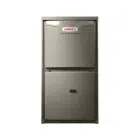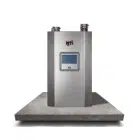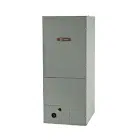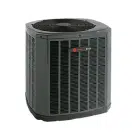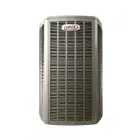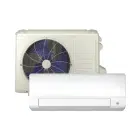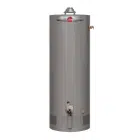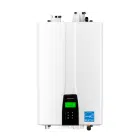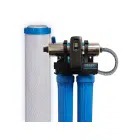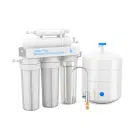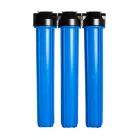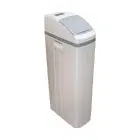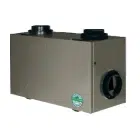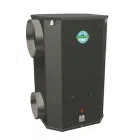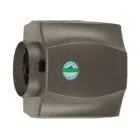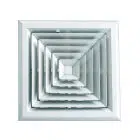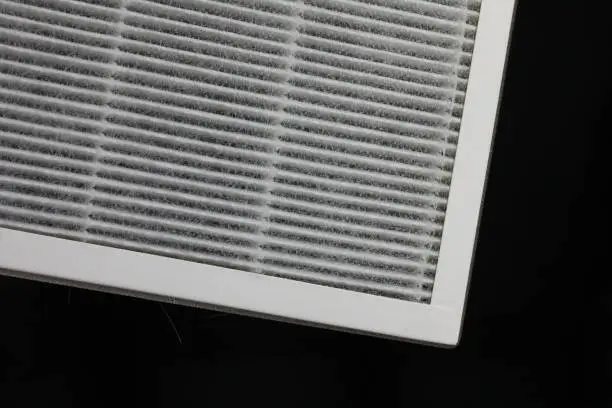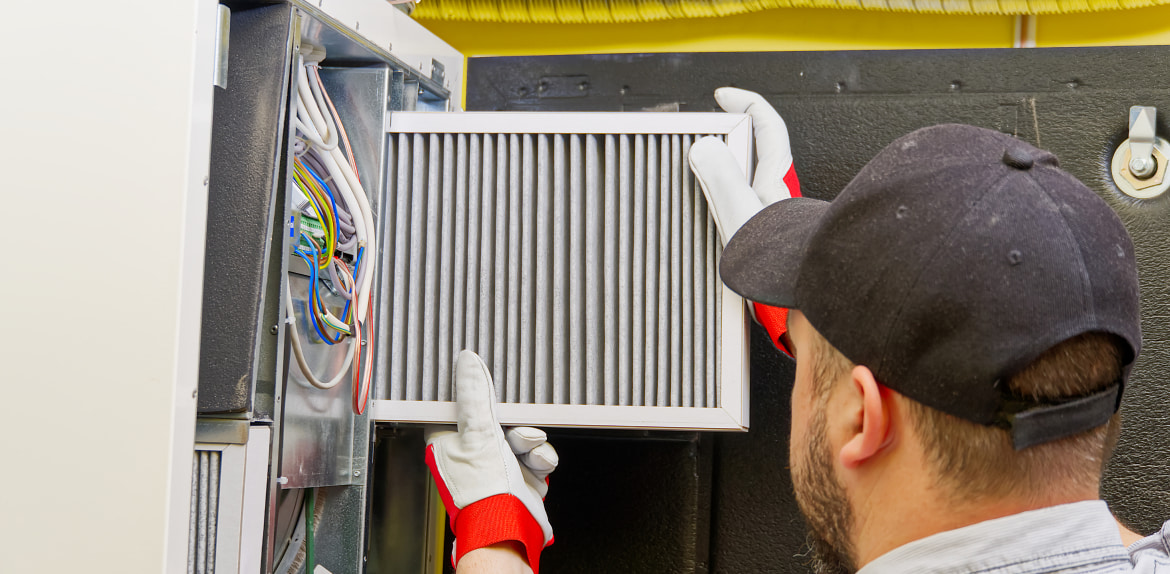
Table of Contents
When it comes to your home’s comfort and air quality, few things are as important as selecting the right air filter for furnace. At HVAC Service Solutions, we understand that choosing the best air filter is not the easiest task. Confusing terminology, a wide array of filter options, compatibility with your type of furnace — all of this makes the decision pretty confusing. This is why we are here to equip you with all information you need to know about furnace filters in Canada, their types, and factors to consider when choosing the perfect unit.
Key Terms You Should Know About Air Filters
Before we jump to the different types of air filters, it’s essential to equip ourselves with some key terms that will help demystify the selection process. Understanding these terms is like having a roadmap to navigate through the various options and make an informed decision.
MERV (Minimum Efficiency Reporting Value): MERV, often referred to as the “report card” for air filters, rates the effectiveness of filters in capturing particles. Ranging from 1 to 20, the higher the MERV rating, the more efficient the filter is at trapping tiny particles like dust, pollen, and pet dander. For everyday household use, a filter with a MERV rating of 8 to 13 strikes a good balance between filtration efficiency and airflow.
HEPA Filter (High-Efficiency Particulate Air): Imagine a HEPA filter as the ultimate super-hero of air filtration. These filters are designed to capture particles as small as 0.3 microns with an impressive efficiency of 99.97%. If you or your loved ones suffer from allergies or asthma, a HEPA filter can significantly improve your indoor air quality by trapping even the tiniest of irritants.
Activated Carbon Filter: Think of activated carbon filters as odor detectives. They specialize in absorbing and neutralizing unpleasant odors and harmful gases. These filters are commonly used in situations where bad smells or potentially harmful gases need to be eliminated, making them an excellent choice for homes with cooking smells, pet odors, or even urban pollution concerns.
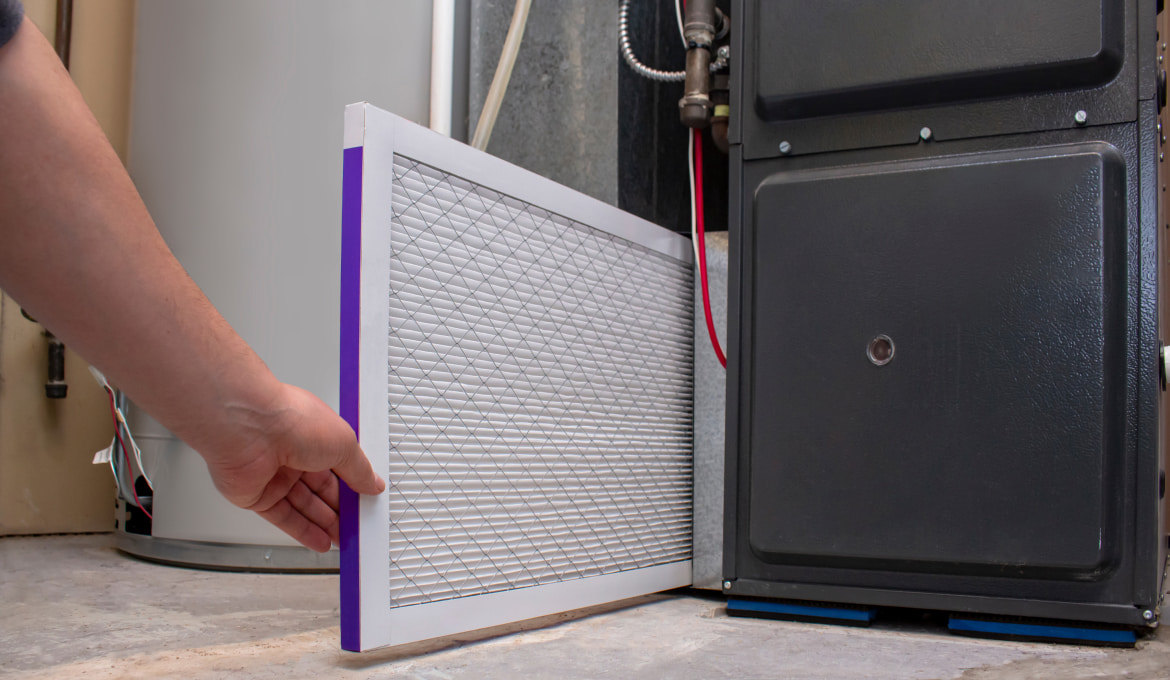
MPR (Microparticle Performance Rating): If MERV is the report card, then MPR is the detailed performance breakdown. MPR measures a filter’s ability to capture particles in the range of 0.3 to 1 micron in size. The higher the MPR, the more efficient the filter is at capturing these small, sneaky particles that often evade other filters.
FPR (Filter Performance Rating): FPR rates filters on a scale from 4 to 10, considering factors like filter efficiency, airflow, and dust-holding capacity. This rating system aims to provide a more holistic view of a filter’s overall performance, helping you make a well-rounded choice based on your specific needs.
Contact us via the link below if you need a personal consultation while choosing the best air filter for your furnace.
Understanding and Comparing Modern Air Filter Types
Now that you’re familiar with the key terms, let’s dive into the modern air filter for furnaces. Each filter type comes with its own set of pros and cons, and we will consider both advantages and limitations.
Fiberglass/Synthetic Filters for Furnace
Fiberglass or synthetic filters are like the reliable workhorse of air filtration. They’re often the go-to choice for many households due to their affordability and basic particle-trapping abilities. These filters use layered fiberglass fibers to capture larger particles like dust and lint, making them suitable for furnaces in low-traffic areas or homes without serious allergen concerns.
Pros | Cons |
|---|---|
Budget-friendly | Limited efficiency for smaller particles |
Commonly available | Shorter lifespan compared to higher-efficiency filters |
Polyester Furnace Filters
Polyester filters are a step up from fiberglass filters, offering improved filtration without breaking the bank. They’re constructed from layers of polyester fibers that can capture smaller particles, making them a solid choice for homes with mild allergen concerns. If you’re seeking a balance between cost and performance, polyester filters might be your sweet spot.
Pros | Cons |
|---|---|
Better filtration than fiberglass | Not as efficient as HEPA filters |
Durable |
Electronic Air Filter for Furnace
Imagine an invisible magnet that attracts and traps particles – that’s the magic of electric furnace filters. These filters use static electricity to draw particles in, resulting in improved filtration efficiency. They come in both disposable and washable versions, offering an eco-friendly option for those looking to reduce waste.
Pros | Cons |
|---|---|
Efficient at capturing small particles | Initial cost might be higher |
Reusable versions available | Some maintenance required |
Pleated Filters
Pleated filters take the concept of surface area to the next level. With more folds and creases, these filters provide a larger canvas for trapping particles, making them particularly effective at improving indoor air quality. They are suitable for homes with higher foot traffic or increased allergen concerns.
Pros | Cons |
|---|---|
Improved filtration | Slightly higher cost |
Longer lifespan | May impact airflow |
UV Filters for Furnace
UV filters introduce a high-tech twist to air filtration. These filters use ultraviolet light to target microorganisms like bacteria, viruses, and mold spores. While they don’t capture particles, they excel at purifying the air from potentially harmful microbes. UV filters are especially valuable for homes with health concerns or compromised immune systems.
Pros | Cons |
|---|---|
Effective against germs, mold, and bacteria | Does not capture particles |
Enhances overall air quality | Professional installation may be required |
HEPA Filters
HEPA filters are the heavyweight champions of air filtration. They boast an incredible ability to capture up to 99.97% of particles, making them a game-changer for allergy and asthma sufferers. HEPA filters are ideal for homes where air quality is a top priority, offering unmatched particle-trapping capabilities.
Pros | Cons |
|---|---|
Exceptional filtration | Higher cost |
Ideal for allergy and asthma sufferers | May require modifications to your furnace system |
So, choosing the right air filter depends on your special needs. For example, the polyester filter is better for capturing smaller particles like allergens, making it suitable for households with mild allergen concerns. On the other hand, the electric air filter for furnace suits those looking for efficient particle capture and are open to occasional maintenance.
In the table below, we have made a comparison of these modern types of furnace filters. We hope it will help you to choose the best air filter based on your specific needs and budget.
Air Filter Type | Filtration Efficiency | Particle Size | Lifespan | Cost | Maintenance | Suitable For | Installation |
|---|---|---|---|---|---|---|---|
Fiberglass/Synthetic | Low to Moderate | Larger particles | Short | Low | Easy replacement | Low allergen concerns, low-traffic areas | DIY |
Polyester | Moderate | Small particles | Medium | Moderate | Easy replacement | Mild allergen concerns | DIY |
Electric | Moderate to High | Small particles | Varies (reusable options) | Moderate | Regular cleaning | Mild to moderate allergen concerns | DIY |
Pleated | High | Small particles | Medium to Long | Moderate to High | Easy replacement | Moderate to high allergen concerns | DIY |
UV | Effective against microorganisms | N/A | Varies | Moderate to High | Minimal maintenance | Homes with health concerns, compromised immune systems | Professional recommended |
HEPA | Very High | Very small particles | Medium to Long | High | Easy replacement | High allergen concerns, allergy/asthma sufferers | Professional recommended |
Factors to Consider When Choosing an Air Filter
Selecting the ideal furnace filters in Canada is not a one-size-fits-all endeavor. Your home’s unique needs, your family’s health considerations, and even your budget all play a crucial role in this decision. Let’s take a closer look at these essential factors.
Indoor Air Quality Needs
Your health is the main consideration when selecting the right air filter. If allergies are a concern, look for filters with higher MERV ratings (between 8 and 13) that efficiently capture allergens like pollen and pet dander. For households with asthma sufferers, consider HEPA filters, which can capture particles as small as 0.3 microns and are effective at minimizing asthma triggers.
Concerned about the indoor air quality in your house? Find out how you can improve the situation in our previous article.
https://thehvacservice.ca/how-to-improve-indoor-air-quality-with-hvac-solutions/
Furnace Filter Sizes
Your furnace’s compatibility with a filter goes beyond just fitting it into the slot. The size of air filters typically refers to their thickness (or depth) as well as their height and length. Air filter thickness usually ranges between 1 and 5 inches, while overall filter sizes can vary from 10 to 30 inches in height and length. To find out which furnace filter sizes your system requires, you can either check the owner’s manual or look at the existing filter to make sure the new filter will fit.
Filter Efficiency Ratings
Filter efficiency ratings, such as MERV, provide insight into a filter’s ability to capture particles of varying sizes. A MERV rating between 8 and 13 is suitable for most homes, offering a good balance between filtration efficiency and airflow. A higher MERV rating (such as 11 or 13) will capture smaller particles, but it’s essential to consider potential airflow restrictions. For more specialized needs, such as severe allergies or respiratory issues, HEPA filters with their exceptional efficiency might be the optimal choice.
Maintenance Frequency
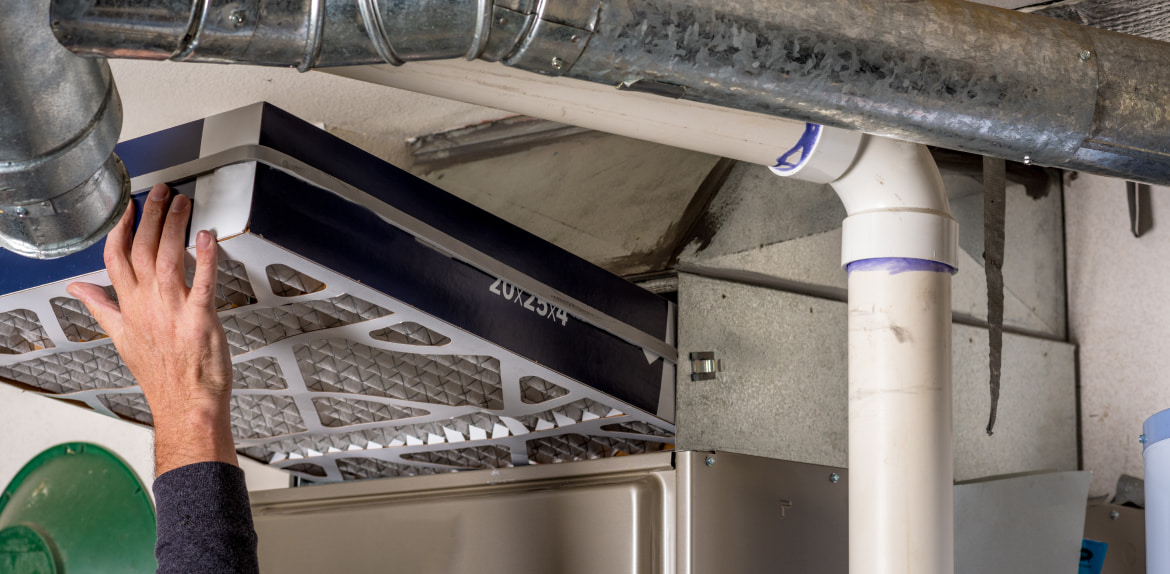
Developing a regular maintenance schedule for your air filter is crucial for maintaining indoor air quality and system efficiency. On average, standard filters may need replacement every 1 to 3 months, while higher efficiency filters (like HEPA) may require replacement every 6 to 12 months.
Find out more about our furnace maintenance services in Canada on our official website.
Energy Efficiency Considerations
The energy efficiency of your furnace can be impacted by the type of air filter you choose. Filters with higher MERV ratings may restrict airflow slightly, potentially causing your system to work harder and consume more energy. So, if energy efficiency is a top priority, consider the overall impact of the filter on your furnace’s performance and your utility bills.
Did you know that you can save up to $10000 on your new energy-efficient furnace while helping the environment at the same time? Check out the details in our previous article via the link.
https://thehvacservice.ca/how-to-save-money-with-government-furnace-rebates-in-ontario/
Environmental Impact and Eco-Friendly Options
For environmentally conscious homeowners, eco-friendly filter choices offer a sustainable alternative. Reusable filters, typically made of washable materials, contribute to reduced waste and long-term cost savings. Additionally, some filters are constructed using recycled or sustainable materials, reducing their environmental footprint.
Conclusion
Choosing the right types of air filters for furnace is pivotal for indoor air quality, home comfort, and overall well-being. Whether you’re aiming to alleviate allergies, create a cleaner living space, or reduce your carbon footprint, the right air filter plays an essential role in achieving your goals.
With our 30+ years of experience, HVAC Service Solutions is your trusted partner in the HVAC industry. We’re here to guide you through the process, ensuring you find the perfect air filter for your furnace. Reach out today for a free consultation via the link below, and let’s create a healthier and more comfortable home together.
Share
